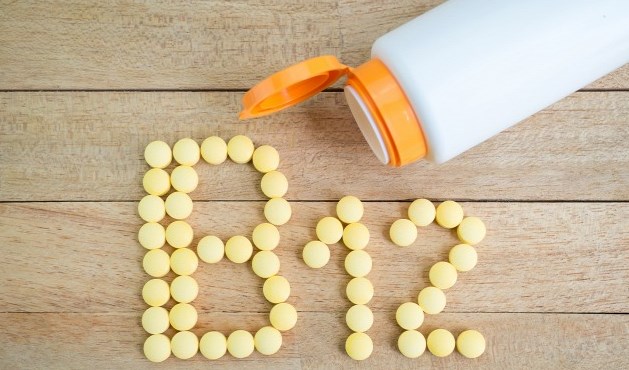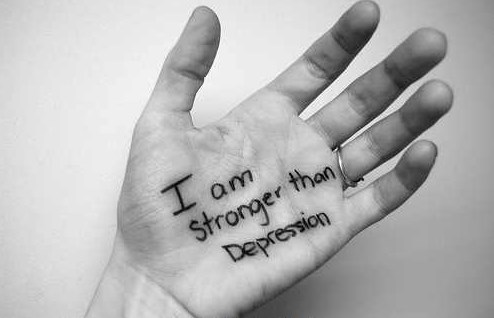5 Nutrients that Relieve Depression
Depression – one of the most common mental disorders nowadays. Unfortunately the number of people who are suffering of this complex disturbance has been highly increased in the past years. There are a lot of circumstances that contribute to mental illnesses. The surroundings, everyday life, personality , different diets and genetics can be one of factors that provoke depression.

Depression is not a problem that happens only in one particular country or continent. It is an illness that the whole world is dealing with. Recently, the nutritionists disclosed that food takes an important part in mental health.
Psychiatrist Drew Ramsey from Maryland, USA, is in the opinion that the Mediterranean food can improve the mental health and lower the risk of depression, while the American/Western diets can just double the risk.
Have you thought that food can play such a big role in the mental health? It’s really interesting that there are some micronutrients that can help as to get rid of depression naturally. Here are some of them:
5 NUTRIENTS THAT CAN HELP US TREAT DEPRESSION SYMPTOMS:
1.ZINC
Biological Psychiatry in December the 2013 published an analysis in which is found that people who suffer from depression had about 14 percent less zinc in their blood than average people. A correlation between the zinc and depression was also found in the researches that the university of Newcastle Australia has made. The analysis has shown that people who have higher intake of zinc have lowered the risk of developing depression, compared to people who have very low intake of zinc.

So if you are having any of the symptoms of depression you should start consuming more food rich in zinc or take zinc supplements. The recommended daily dose of zinc is 9 mg for women and 11 mg for men. Great sources of this mineral are the whole grains, red meat, oysters, beans and poultry.
2.OMEGA -3 FATTY ACIDS
Omega 3 is one of the most important nutrients that not only helps in lowing the risks of depression, by helping the production of serotonin in the brain, but also helps in maintaining the health of the lungs, heart, blood, vessels, brain, boosts the immune system and the endocrine system. These fatty acids are also an anti-inflammatory which is very important cause the depression is also found to be caused in part by inflammation in the brain. Recommended daily intake is 1.1 grams for women and 1.6 grams for men. You can find the Omega-3 acids in the salmon, tuna, chia seeds, flaxseeds and walnuts.
3.VITAMIN B12

There are a lot of evidences that prove how much the b12 vitamin is effective in treating depression. One of those is the Finnish study in which 115 patients took a part, all of those patients has visited psychiatrists because of suffering of major depression. The study found that 6 months after the counseling treatments have ended, the patients with highest level of vitamin b12 in their bloodstream have shown the best result.
Increasing the intake of food rich in vitamin B12 such as beef liver, clams, fish, poultry, eggs and dairy products are highly suggested if you are suffering from depression. The daily intake vary by age. Infants six months and younger need 0.4 mcg, while adults need 2.4 mcg.
4.VITAMIN D
Other important nutrient that can prevent developing depression is the Vitamin D. According to a study made in the Netherlands people with low levels of this vitamin are showing more symptoms of depression.
The main source of this vitamin is the sunlight, but if you are not living in sunny areas you can also consume supplements. Experts recommend 400 IU for 12 months old and younger infants, while adults (19 – 70 years old) should consume 600 IU daily.
5.FOLATE
‘’A folate deficiency could cause depression’’ – was published in Indian Journal of Psychiatry. According to the researchers and their findings, people suffering from depression had 25% lower folate levels than the average person. They say that the depressive symptoms are the most common neuropsychiatric manifestation of the lack of folate.
The daily amount is 65 mcg for infants 6 months and younger, and 400 mcg for adults aged 19-70. The folate can be found in whole grains, asparagus, leafy vegetables, oranges, asparagus, peanuts, beans and whole grains.

Maybe eating healthy food can’t help you treat the depression right away, but in long term, you will definitely notice the benefits of consuming all of the micronutrients we mentioned above, and not only in easing the depressive symptoms, but in overall well-being.
